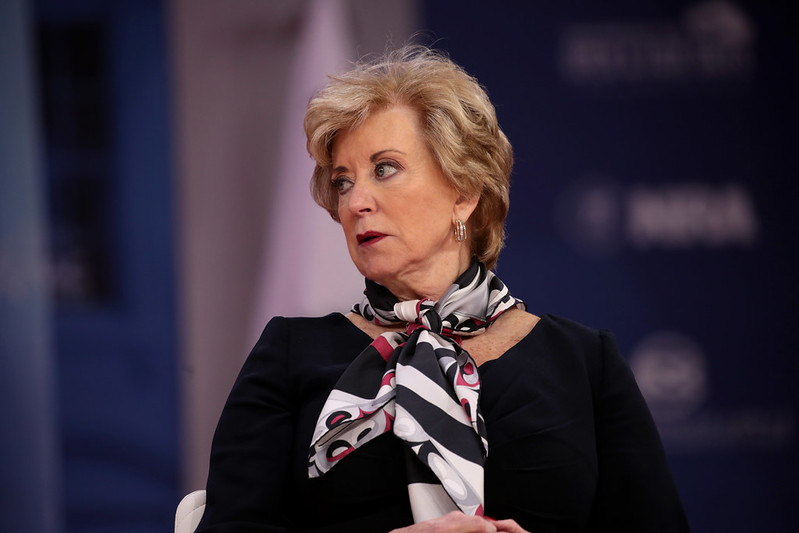The education system in the United States is a critical pillar of society, shaping future generations and driving national progress. However, every now and then, debates arise over whether certain public figures, policies, or appointments have a positive or negative impact on the system. Linda McMahon, the former WWE executive and political figure, has found herself at the center of such debates. But is she really bad news for the US education system? Let’s delve deeper into the topic to understand the nuances and controversies surrounding her influence.
Who is Linda McMahon?
Before jumping into the core of the discussion, it’s essential to know who Linda McMahon is. She is a prominent businesswoman best known for her role in transforming WWE (World Wrestling Entertainment) into a global entertainment empire. Later, she entered politics, serving as the head of the Small Business Administration (SBA) under President Donald Trump’s administration. While her background lies in business, her political career and public stance on various issues have raised questions about her suitability to influence education policies.

What Sparks the Concern?
Linda McMahon’s involvement in public life often intersects with conservative political ideologies, particularly those that prioritize deregulation and privatization. Critics worry that such perspectives, if extended to the education sector, could lead to:
- Increased Privatization of Schools:
A recurring concern is her alignment with policies that promote private institutions and charter schools over public education. Privatization, while offering competition and innovation, may also undermine equal access to quality education. - Funding Issues for Public Schools:
Public education heavily relies on federal and state funding. If policies under McMahon’s influence redirect resources toward private enterprises, public schools could face budget cuts, affecting facilities, teacher salaries, and student programs. - Undermining Teacher Protections:
Critics argue that conservative leaders often push for reforms that may reduce teachers’ unions’ power and benefits. This could discourage talented individuals from entering or staying in the teaching profession.
Supporters Paint a Different Picture
While there is criticism, it’s worth noting that McMahon also has supporters who believe her business acumen and reformist approach could benefit the education sector. They argue that:
- Business Efficiency Can Help Schools:
Drawing from her corporate experience, McMahon could bring strategies to improve financial management and operational efficiency in schools. - Focus on Entrepreneurship and Practical Skills:
During her time at the SBA, she highlighted the value of entrepreneurial skills. Supporters believe such emphasis could benefit students by preparing them for real-world challenges. - Advocacy for Parental Choice:
Proponents highlight her alignment with school choice policies, which give parents more control over their children’s education by allowing them to select schools that best suit their needs.
Key Controversies
Despite her potential contributions, several controversies have fueled skepticism about her influence on education.

Emphasis on Charter Schools
McMahon has been associated with political agendas favoring charter schools, which operate independently of traditional public school systems. While charter schools can foster innovation, critics argue they often siphon funding away from public schools, leaving the latter underfunded and disadvantaged.
Potential Conflict of Interest
Given her business background, some fear that her policies might lean toward benefiting corporate interests rather than addressing grassroots educational challenges. This has led to questions about whether her leadership would prioritize profit over pedagogy.
A Narrow Focus on Vocational Training
Another point of contention is the potential for an overemphasis on vocational and entrepreneurial training, which, while essential, may downplay the importance of arts, humanities, and other academic fields. Education, critics argue, should be holistic rather than narrowly focused on job-oriented outcomes.
The Bigger Picture: Education Reform Needs
While Linda McMahon’s role sparks debate, it’s crucial to remember that the challenges facing the US education system extend far beyond one individual. Issues like underfunding, outdated curricula, teacher shortages, and unequal access to resources require collective effort and bipartisan solutions.
Balancing Innovation and Equity
Innovations such as school choice and privatization should be implemented carefully to avoid widening the gap between wealthy and low-income families. Public education must remain a strong foundation that guarantees quality learning for all students, regardless of socioeconomic status.
Investing in Teachers
For any educational reform to succeed, investing in teachers is non-negotiable. Competitive salaries, ongoing professional development, and respect for their roles are vital to attracting and retaining top talent.
Integrating Modern Skills
While critics question McMahon’s vocational training focus, integrating modern skills such as entrepreneurship, technology literacy, and critical thinking is essential. However, this must be balanced with traditional academics to create well-rounded individuals.
Final Thoughts
So, is Linda McMahon bad news for the US education system? The answer depends on perspective. Her business-oriented approach and focus on efficiency could introduce valuable changes, but they also come with risks of privatization and resource diversion. The education system is a complex ecosystem that requires leaders to balance innovation with equity, funding with accountability, and modern skills with academic depth.
For parents, educators, and policymakers, the key takeaway is to stay informed and actively participate in shaping policies that benefit all students. The debate surrounding figures like Linda McMahon serves as a reminder of the importance of vigilance and advocacy in ensuring that education remains a priority in shaping the nation’s future.
